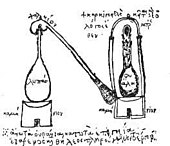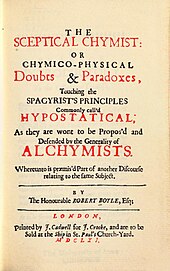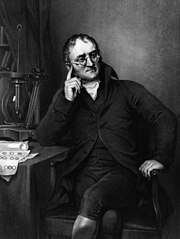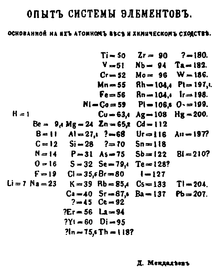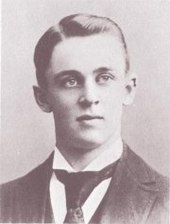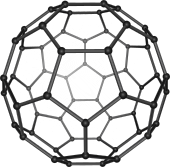Timeline of chemistry
This timeline of chemistry lists important works, discoveries, ideas, inventions, and experiments that significantly changed humanity's understanding of the modern science known as chemistry, defined as the scientific study of the composition of matter and of its interactions.
Known as "the central science", the study of chemistry is strongly influenced by, and exerts a strong influence on, many other scientific and technological fields.
Many historical developments that are considered to have had a significant impact upon our modern understanding of chemistry are also considered to have been key discoveries in such fields as physics, biology, astronomy, geology, and materials science.
[1] Prior to the acceptance of the scientific method and its application to the field of chemistry, it is somewhat controversial to consider many of the people listed below as "chemists" in the modern sense of the word.
However, the ideas of certain great thinkers, either for their prescience, or for their wide and long-term acceptance, bear listing here.


